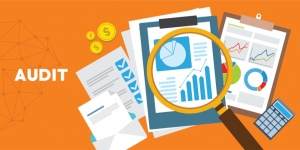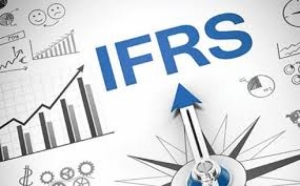عرض العناصر حسب علامة : المخزون
الخميس, 26 أغسطس 2021 11:04
كيف يمكن لتحليلات البيانات أن تعزز الخدمات الاستشارية؟
في المحاسبة، نتحدث طوال الوقت عن قيمة كونك "مستشارًا موثوقًا به" لعملائك. نتحدث أيضًا عن الأهمية المتزايدة للخدمات الاستشارية، خاصة وأن الأتمتة تجعل العمل الحسابي أسهل وأقل استهلاكا للوقت. هناك العديد من الأدوات التي يمكن للشركات استخدامها لتعزيز قدراتها الاستشارية، ويجب أن تكون تحليلات البيانات واحدة في مجموعتك. من خلال البيانات القوية والقدرة على اكتساب رؤى منها، يمكنك تقديم إرشادات مفصلة وقابلة للتنفيذ لعملائك.
معلومات إضافية
-
المحتوى بالإنجليزية
In accounting, we talk all the time about the value of being a “trusted advisor” to your clients. We also talk about the increasing importance of advisory services, especially as automation renders computational work easier and less time consuming. There are many tools that firms can use to bolster their consulting capabilities, and data analytics should be one in your suite. With powerful data and the ability to gain insights from it, you can provide detailed, actionable guidance to your clients.
Investopedia defines "data analytics” as “the science of analyzing raw data in order to make conclusions about that information.” While that may sound a bit broad, it’s helpful in understanding that analytics is not just a technology initiative; it also involves the human ability to interpret information in context. One data point may mean one thing for one client but something totally different for another. Technology is an essential part of assembling and collating data, but you can’t rely on apps alone to provide insights that will leave your clients wowed. Data, no matter how accurate and detailed it is, must be analyzed by humans and converted into a plan of action that helps the client achieve their goals.
CPA Firms have a leg up on many other industries when it comes to gathering data on our clients. By the very nature of our profession, as was noted in a helpful overview of data analytics on this site, “clients entrust us with large amounts of confidential data.” The rise of cloud-based accounting software has only increased the amount of data available to CPAs. Odds are your clients don’t even realize how much data they have about their business, let alone how to turn that data into meaningful insights about how to better run their company. That’s why accounting firms who are able to accomplish these tasks stand to become ever-more valuable to the businesses they serve.
Future technology touchscreen interface. Man touching screen interface in hi-tech interior.Businessman drawing chart in futuristic office.Picasa/sellingpix - stock.adobe.com
Turning data into insights
Managing Your Firm in a Post-COVID World
Think beyond the pandemic with exclusive resources to help you build a thriving virtual practice.
SPONSORED BY INTUIT ACCOUNTANTS
Raw data is just that: raw. It is often unorganized, hard to interpret and overwhelming. If you want to provide streamlined advice to your clients, you need to be skilled at both analyzing data and packaging it in a way that is comprehensible and compelling to clients. The best data-based guidance will use numbers to reveal, confirm, or dispute an insight into how a business operates, providing a new level of understanding upon which to base decisions. In basketball, for example, analyzing years and years of spatial data uncovered that mid-range jump shots were some of the least valuable shots a team could take. As a result, general managers sought out an increased number of three-point shooters and at-the-rim finishers to increase their offensive efficiency. Today, NBA teams take more threes than ever before.
The same sort of analysis can be done on clients. Let’s say you have a client who is a retailer — they have brick-and-mortar locations, as well as an ecommerce presence. While they can have a larger product mix online, limited in-store space requires stocking a small portion of their inventory. If you can run the numbers and tell them which items are languishing on their shelves longest, you can make their in-store operations more profitable. Once you begin leveraging these quick and powerful takeaways, your clients will be more open to engaging in an advisory relationship. Remember to keep in mind the human or subjective aspects of your clients’ businesses at all times. The numbers may not lie but they also are just a part of the picture. The best advisors are those who combine clinical analysis with an empathetic human touch. Be mindful of all aspects of your clients when offering them guidance.
As data analysis becomes more widespread, the firms who are familiar with the systems and processes related to it will have a leg up on those who don’t. If you’re not already analyzing the data you get for clients to look under the hood of their business, it’s time to start doing so. That data should be combined with other factors about the types of companies you serve — if you serve a particular industry, you should be familiar with its workings and pain points — in order to make your clients better. That’s how you become a trusted advisor.
نشر في
تكنولوجيا المعلومات
موسومة تحت
الأربعاء, 28 سبتمبر 2022 12:27
تحديث لجنة تفسيرات المعايير الدولية للتقارير المالية IFRIC لشهر فبراير 2021 متاح الآن
معلومات إضافية
-
المحتوى بالإنجليزية
IFRIC Update February 2021
IFRIC Update is a summary of the decisions reached by the IFRS Interpretations Committee (Committee) in its public meetings.
The Committee met on 2 February 2021, and discussed:
Items on the current agenda
Sale and Leaseback of an Asset in a Single-Asset Entity (IFRS 10 Consolidated Financial Statements and IFRS 16 Leases)—Agenda Paper 2
Committee’s tentative agenda decisions
Costs Necessary to Sell Inventories (IAS 2 Inventories)—Agenda Paper 3
Preparation of Financial Statements when an Entity is No Longer a Going Concern (IAS 10 Events after the Reporting Period)—Agenda Paper 4
Other matters
Work in Progress—Agenda Paper 5
Related information
Next scheduled IFRS Interpretations Committee meeting:
16–17 March 2021
Interpretations Committee open items
For further information about IFRS Interpretations Committee activities including how to receive past IFRIC Updates follow the Interpretations Committee group page.
Items on the current agenda
Sale and Leaseback of an Asset in a Single-Asset Entity (IFRS 10 Consolidated Financial Statements and IFRS 16 Leases)—Agenda Paper 2
The Committee considered feedback on the tentative agenda decision discussing the applicability of the sale and leaseback requirements in IFRS 16 to a transaction in which an entity sells its equity interest in a subsidiary that holds only a real estate asset and leases that real estate asset back. The Committee recommended that the Board undertake narrow-scope standard-setting to address this and similar transactions.
Next step
The Board will discuss the Committee’s recommendation at a future Board meeting.
Committee’s tentative agenda decisions
The Committee discussed the following matters and tentatively decided not to add standard-setting projects to the work plan. The Committee will reconsider these tentative decisions, including the reasons for not adding standard-setting projects, at a future meeting. The Committee invites comments on the tentative agenda decisions. Interested parties may submit comments on the open for comment page by 14 April 2021. All comments will be on the public record and posted on our website unless a respondent requests confidentiality and we grant that request. We do not normally grant such requests unless they are supported by a good reason, for example, commercial confidence. The Committee will consider all comments received in writing by 14 April 2021; agenda papers analysing comments received will include analysis only of comments received by that date.
Costs Necessary to Sell Inventories (IAS 2 Inventories)—Agenda Paper 3
The Committee received a request about the costs an entity includes as the ‘estimated costs necessary to make the sale’ when determining the net realisable value of inventories. In particular, the request asked whether an entity includes all costs necessary to make the sale or only those that are incremental to the sale.
Paragraph 6 of IAS 2 defines net realisable value as ‘the estimated selling price in the ordinary course of business less the estimated costs of completion and the estimated costs necessary to make the sale’. Paragraphs 28–33 of IAS 2 include further requirements about how an entity estimates the net realisable value of inventories. Those paragraphs do not identify which specific costs are ‘necessary to make the sale’ of inventories. However, paragraph 28 of IAS 2 describes the objective of writing inventories down to their net realisable value—that objective is to avoid inventories being carried ‘in excess of amounts expected to be realised from their sale’.
The Committee observed that, when determining the net realisable value of inventories, IAS 2 requires an entity to estimate the costs necessary to make the sale. This requirement does not allow an entity to limit such costs to only those that are incremental, thereby potentially excluding costs the entity must incur to sell its inventories but that are not incremental to a particular sale. Including only incremental costs could fail to achieve the objective set out in paragraph 28 of IAS 2.
The Committee concluded that, when determining the net realisable value of inventories, an entity estimates the costs necessary to make the sale in the ordinary course of business. An entity uses its judgement to determine which costs are necessary to make the sale considering its specific facts and circumstances, including the nature of the inventories.
The Committee concluded that the principles and requirements in IFRS Standards provide an adequate basis for an entity to determine whether the estimated costs necessary to make the sale are limited to incremental costs when determining the net realisable value of inventories. Consequently, the Committee [decided] not to add a standard-setting project to the work plan.
Preparation of Financial Statements when an Entity is No Longer a Going Concern (IAS 10 Events after the Reporting Period)—Agenda Paper 4
The Committee received a request about the accounting applied by an entity that is no longer a going concern (as described in paragraph 25 of IAS 1 Presentation of Financial Statements). The request asked whether such an entity:
can prepare financial statements for prior periods on a going concern basis if it was a going concern in those periods and has not previously prepared financial statements for those periods (Question I).
restates comparative information to reflect the basis of accounting used in preparing the current period’s financial statements if it had previously issued financial statements for the comparative period on a going concern basis (Question II).
Question I
Paragraph 25 of IAS 1 requires an entity to prepare financial statements on a going concern basis ‘unless management either intends to liquidate the entity or to cease trading, or has no realistic alternative but to do so’. Paragraph 14 of IAS 10 states that ‘an entity shall not prepare its financial statements on a going concern basis if management determines after the reporting period either that it intends to liquidate the entity or to cease trading, or that it has no realistic alternative but to do so’.
Applying paragraph 25 of IAS 1 and paragraph 14 of IAS 10, an entity that is no longer a going concern cannot prepare financial statements (including those for prior periods that have not yet been authorised for issue) on a going concern basis.
The Committee therefore concluded that the principles and requirements in IFRS Standards provide an adequate basis for an entity that is no longer a going concern to determine whether it prepares its financial statements on a going concern basis.
Question II
Based on its research, the Committee observed no diversity in the application of IFRS Standards with respect to Question II—entities do not restate comparative information to reflect the basis of preparation used in the current period when they first prepare financial statements on a basis that is not a going concern basis. Therefore, the Committee has not [yet] obtained evidence that the matter has widespread effect.
For the reasons noted above, the Committee [decided] not to add a standard-setting project on these matters to the work plan.
Other matters
Work in Progress—Agenda Paper 5
The Committee received an update on the current status of open matters not discussed at its meeting in February 2021. - البلد الأردن
نشر في
محاسبة و مراجعة
الثلاثاء, 24 مايو 2022 12:20
الشرح التفصيلى لمعيار المحاسبة المصرى رقم 2 المخزون
نشر في
فيديو
موسومة تحت
الأربعاء, 22 فبراير 2023 10:36
معايير المحاسبة المصرية
نشر في
معايير محاسبة
الإثنين, 10 أغسطس 2020 11:12
التدقيق عن بُعد
نشر في
موضوعات متنوعة
الثلاثاء, 28 يوليو 2020 11:48
حقيبة المبادئ المحاسبية
من خلال دراسة هذه الحقيبة سوف يتمكن المدرب من الالمام بالمعالجات المحاسبية والمواضيع المختلفة. ففي هذه الحقيبة يتم التطرق لما يحدث داهل المنشأة وكذلك تعاملاتها مع الأطراف الخارجية
نشر في
كتب و مجلات
الثلاثاء, 27 سبتمبر 2022 11:20
تقرير صادر عن جرانت ثورنتون "اضمحلال الأصول غير الملموسة والشهرة"
نشر في
محاسبة و مراجعة
الأحد, 12 فبراير 2023 09:04
أفهم معايير : معيار المخزون (2)
نشر في
موضوعات متنوعة
الأربعاء, 01 فبراير 2023 09:40
كيفية معالجة فوائد القرض الخاصة بالمخزون
معلومات إضافية
- المحتوى بالإنجليزية How to treat loan interest
نشر في
موضوعات متنوعة
الإثنين, 20 فبراير 2023 11:28
تحديد مخزون آخر الفترة – أمثلة عملية (بضاعة بالطريق – بضاعة الأمانة)
معلومات إضافية
- المحتوى بالإنجليزية Measurement of Ending Inventory
نشر في
موضوعات متنوعة










